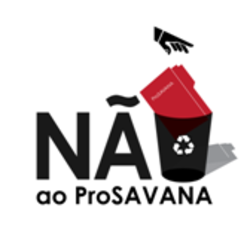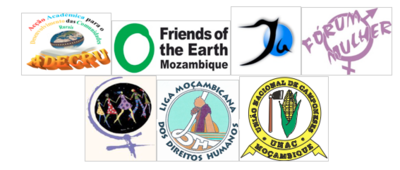No to ProSavana | 7 May 2016
1. To produce and share relevant and accurate information about ProSavana and peasants’ rights;
Summary of the No to ProSavana Campaign’s meeting for convergence and resistance
Nampula, 7 May 2016
On May 6-7, the No to ProSavana Campaign’s “meeting for convergence and resistance” took place in Nampula, Mozambique. Around 70 people participated in the meeting from organisations in the No to ProSavana Campaign, including peasants from 19 districts of the provinces Nampula, Niassa and Zambézia affected by the ProSavana programme; peasant representatives from Cabo Delgado; and representatives from the Peace and Justice Commissions of Nampula and Nacala.
The objective of this meeting was to promote open, united and comprehensive reflection regarding the ProSavana programme in order to reaffirm our commitment and organise the resistance effort to fight against this programme.
We, the organisations of the No to ProSavana Campaign; peasants from 19 districts of the provinces Nampula, Niassa and Zambézia affected by the ProSavana programme; peasant representatives from Cabo Delgado; and representatives from the Peace and Justice Commissions of Nampula and Nacala, reaffirm the following:
1. We reject the ProSavana programme, as it has been advancing against our expressed will for the last four years;
2. The Master Plan document betrays the needs and aspirations of peasant communities;
3. There are cases of land grabbing and human rights violations in the communities targeted by the ProSavana programme;
4. There is widespread distortion and misrepresentation of information about the implementation of the programme;
5. The affected communities are not receiving relevant and accurate information about the programme; thus, the organisations must unite in order to disseminate information themselves;
6. There appear to have been multiple attempts to manipulate public opinion, particularly that of peasants, in order to ensure the acceptance of the programme;
7. We need to formally express the demands and concerns of peasant families to the government;
8. We do not identify with the Civil Society Coordination Mechanism for the Agrarian Development of the Nacala Corridor, due to its lack of transparency and its failure to represent the interests of peasant families who are treated merely as “affected peoples” and not as an integral part of the programme;
9. Peasant families demand a direct dialogue with the government and the Japanese Agency of International Cooperation (JICA);
10. We are committed to defending the right to land and natural resources;
11. We are committed to fighting and resisting land grabbing and the implementation of ProSavana;
The following were identified as strategies of resistance and struggle:
1. To produce and share relevant and accurate information about ProSavana and peasants’ rights;
2. To strengthen the grassroots work among communities affected by the Prosavana programme and land grabbing in general;
3. To urgently hold convergence and resistance meetings in the communities and administrative posts where the implementation of Prosavana is planned;
4. To reinforce the position and arguments of peasants in dialogues with the government about ProSavana and other investments;
5. To continue using our resistance techniques and tactics in the communities to fight against ProSavana;
6. To use all possible spaces to intensify the debate regarding the issue of ProSavana and land grabbing;
7. To strengthen the organisation, increase unity and further articulate the links between the peasant families and communities affected by ProSavana with organizations and social movements;
8. To share information and examples of mobilisation and resistance with communities in various provinces throughout the country;
9. To hold even more meetings of empowerment and popular education in the communities;
10. The social movements and civil society organisations of the No to ProSavana Campaign must reach out to the people who still do not know what is happening;
While peasant families, communities and civil society organisations are united, we will continue in the fight against inequality and environmental, social, economic and political injustices; as well as in defence of human rights and the right to land and other natural resources (water, forests, seeds, air, etc).
It should be noted that the No to ProSavana Campaign’s meeting of convergence and resistance was organised by the organisations articulated in the No to ProSavana Campaign, namely, Academic Action for Community Development (Adecru); Women’s Forum/World March of Women; Justiça Ambienta/Friends of the Earth Mozambique, Mozambican League for Human Rights (LDH); Livaningo; and National Farmers’ Union (UNAC), with support from FIAN International.















